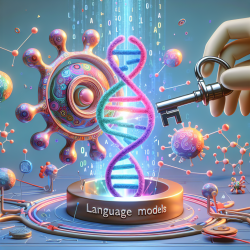As practitioners dedicated to improving the lives of children, we are constantly seeking ways to enhance our understanding and treatment of various conditions. One such condition that requires our attention is Idiopathic Ketotic Hypoglycemia (IKH), a frequent yet under-researched cause of hypoglycemia in childhood. The recent literature review titled "Towards enhanced understanding of idiopathic ketotic hypoglycemia: a literature review and introduction of the patient organization, Ketotic Hypoglycemia International" provides valuable insights that can help us improve our skills and encourage further research.
Understanding Idiopathic Ketotic Hypoglycemia
IKH is a diagnosis of exclusion, often identified after ruling out various metabolic and hormonal diseases. It is characterized by episodes of hypoglycemia accompanied by elevated ketone levels, typically occurring in children after periods of fasting or illness. While IKH is often mild and self-limiting, more severe cases can persist into adulthood, requiring careful management and monitoring.
Key Findings from the Research
The literature review highlights several critical points:
- IKH can be divided into physiological KH (a normal response to fasting or illness) and pathological KH (recurrent or severe episodes requiring intervention).
- Management of KH aims to prevent hypoglycemia and maintain adequate carbohydrate and protein intake. This may include nutritional therapy, uncooked cornstarch, and in severe cases, continuous tube feeding.
- Failure to recognize the severity of IKH can lead to under-treatment and poor outcomes.
- KHI, a novel patient organization, aims to enhance understanding and support for families affected by IKH.
Implementing Research Outcomes in Practice
As practitioners, we can implement the findings from this research to improve outcomes for children with IKH:
- Early Identification: Recognize the signs and symptoms of IKH early to prevent severe episodes. This includes understanding the differences between physiological and pathological KH.
- Individualized Management Plans: Develop personalized treatment plans that include regular monitoring of blood glucose and ketone levels, nutritional therapy, and appropriate interventions during acute episodes.
- Family Education: Educate families about the condition, its management, and the importance of regular monitoring. Provide resources and support to help them navigate the challenges of living with IKH.
- Collaboration with KHI: Partner with Ketotic Hypoglycemia International to stay updated on the latest research, share best practices, and support ongoing advocacy and research efforts.
Encouraging Further Research
While the literature review provides valuable insights, there is still much to learn about IKH. We encourage practitioners to engage in further research to uncover the underlying causes, improve diagnostic criteria, and develop more effective treatment strategies. Collaboration with organizations like KHI can provide access to a broader network of researchers, patients, and families, facilitating the exchange of knowledge and resources.
By staying informed and proactive, we can make a significant impact on the lives of children with IKH, ensuring they receive the best possible care and support.
To read the original research paper, please follow this link: Towards enhanced understanding of idiopathic ketotic hypoglycemia: a literature review and introduction of the patient organization, Ketotic Hypoglycemia International.










